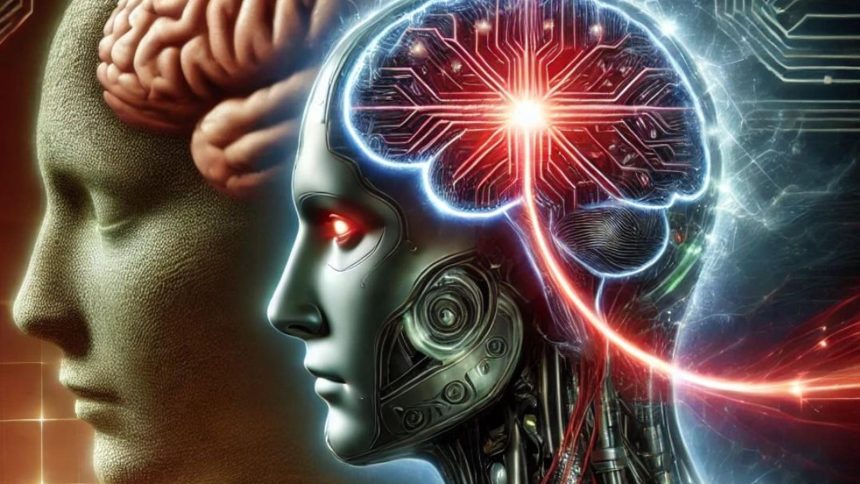The increasing integration of artificial intelligence (AI) into various aspects of professional life has sparked both excitement and apprehension. While AI offers the potential to streamline workflows and enhance productivity, a recent study published in Societies highlights a concerning trend: the potential for AI to undermine critical thinking skills through a phenomenon known as cognitive offloading. This phenomenon, where individuals rely on technology for mental tasks rather than engaging in independent thought, raises significant concerns, particularly in high-stakes fields like law and forensic science where errors can have serious consequences.
The study, involving 666 participants across diverse demographics, revealed a strong correlation between frequent AI use and cognitive offloading. Participants who heavily relied on AI tools demonstrated a diminished capacity for critical evaluation and nuanced analysis. Worryingly, this trend was more pronounced among younger participants, suggesting a potential generational shift towards greater dependence on AI, which could have long-term implications for the development and maintenance of professional expertise. The researchers caution that while AI can be a valuable tool, overreliance can lead to “knowledge gaps” where users lose the ability to independently verify or challenge AI-generated outputs. This blind trust can introduce errors that undermine the integrity of professional work, damage reputations, and erode public trust.
The legal and forensic fields offer compelling examples of the potential pitfalls of overreliance on AI. While AI can assist with tasks such as data analysis and case preparation, there is a growing concern that professionals may become overly dependent on these tools without adequate scrutiny. AI algorithms, while powerful, can generate plausible yet incorrect outputs. Instances of fabricated evidence or inaccurate calculations being introduced into legal proceedings underscore the potential for serious errors when AI outputs are not rigorously verified. Moreover, the habit of outsourcing complex cognitive tasks to AI can gradually erode the very expertise that professionals are expected to possess, diminishing their ability to critically evaluate evidence and formulate sound judgments. This erosion of expertise, coupled with a potential diffusion of responsibility, creates a dangerous precedent where errors are overlooked or attributed to the technology rather than the human user.
The implications of these findings extend beyond the legal and forensic arenas. Any profession that relies on human judgment and specialized knowledge is susceptible to the pitfalls of cognitive offloading. The insurance industry, for example, faces similar challenges as AI increasingly plays a role in claims processing and risk assessment. These high-stakes industries serve as a crucial warning for other sectors, highlighting the potential risks and challenges associated with unchecked AI integration. The key takeaway is the need for a balanced approach where AI augments human capabilities, not replaces them. Human expertise must remain the cornerstone of decision-making, with AI serving as a supportive tool rather than the primary driver.
Maintaining this balance requires a multi-pronged approach. First and foremost, human expertise must remain central to the decision-making process. AI outputs should always be subject to rigorous verification and contextualization by trained professionals. Blind acceptance of AI-generated information without critical evaluation is a recipe for disaster. Secondly, fostering a culture of critical thinking is essential. Professionals must be trained to engage critically with AI-generated data, questioning its validity, exploring alternative interpretations, and understanding the limitations of the algorithms employed. Simply put, users must develop a healthy skepticism towards AI outputs and retain the ability to independently analyze and interpret information.
Finally, robust regulatory frameworks and training programs are crucial for navigating the evolving landscape of AI integration. As AI becomes increasingly prevalent in professional settings, industries must develop clear standards for its use, ensuring that professionals are adequately trained to understand both the potential benefits and the inherent limitations of these powerful tools. This includes training on how to identify potential biases in algorithms, how to interpret and validate AI-generated outputs, and how to maintain accountability in an AI-driven environment. Ultimately, the responsible and ethical integration of AI requires a commitment to preserving the human element in professional practice. Maintaining accuracy, accountability, and ethical integrity necessitates a cautious approach where human expertise and critical thinking remain paramount, guiding the use of AI and ensuring its outputs are subject to rigorous scrutiny. Only through such a balanced approach can we harness the power of AI while safeguarding the core values of professional expertise and public trust.



